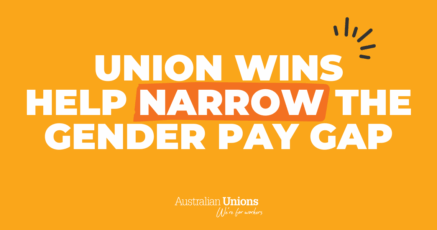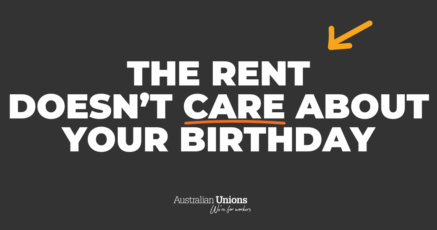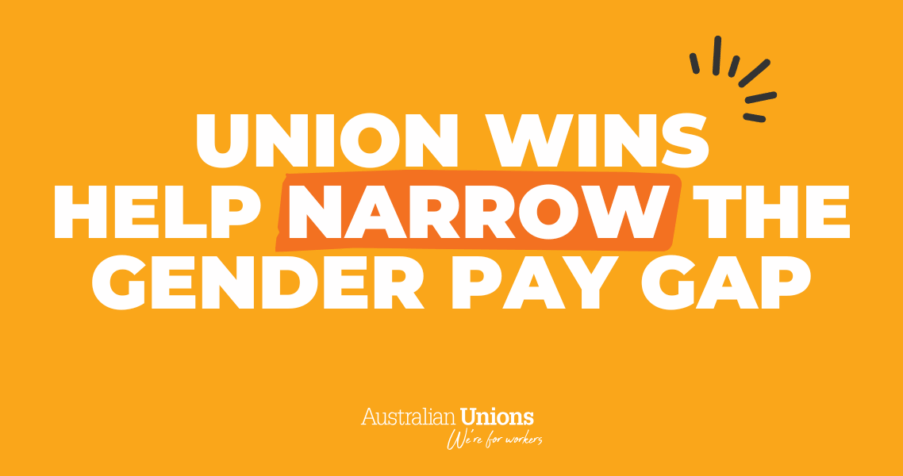World Pride has kicked off in Sydney with a bang. It’s a super-sized pride festival that includes the annual Mardi Gras festivities but on an international stage with more entertainment events, First Nations programming and a human rights conference.
Support is always available
- Call 000 if you, a child, or another person is in immediate danger.
- Call or have an online chat with queer peer support and referral service QLife 3pm – midnight, 7 days a week
And while it’s great to see queer pride on full display, it’s easy to get lost in the sea of commercial interests and dodgy corporations.
Here are some examples to help you figure out what is genuinely queer friendly, and what is undermining the LGBTIQA+ community – and not just during Mardi Gras.
Pink what?
To put it simply, pinkwashing is rainbow-tinted hypocrisy.
It’s when a company, organisation or political group uses LGBTIQA+ branding but do nothing for the queer community or even actively work against LGBTIQA+ interests.
Most of the time, the goal is to attain the ‘pink dollar’ – a term used to describe LGBTIQA+ consumers and allies who purchase pride-branded products.
Other than the well-recognised pride rainbow, the colour pink is closely associated with the global queer community. The backstory is a dark one: the Nazi regime used pink triangles to label those they deemed homosexual.
It’s exactly that history of queer oppression and queer resistance that major corporations choose to ignore when they pursue profits to the detriment of LGBTIQA+ workers.
Like a really messed up version of ‘Where’s Wally’, spotting pinkwashing can be as simple as pointing out rainbow logos of exploitative mega companies. But here are three examples that take it to another level.
1. Fishy double dealing
Sea Life launched the aquarium’s opening weekend of Sydney World Pride with a “dating and mating” event “celebrating diversity and relationships in the animal kingdom”.
Cute, right? Umm, not really.
Despite having to work the pride weekend, Sea Life employees make just $22.76 per hour and rarely receive penalty rates.
There is no excuse for this kind of treatment: the company made $288 million in profits last year and CEO and Executive pay packets increased by 36 per cent.
It’s pretty clear who ultimately benefits from the pink dollar.
Want to show your support? Members of the United Workers Union who are employed at Sea Life are asking for people to give Sea Life a negative Google review.
2. More hindrance than help
Sydney Mardi Gras started as a union-led protest for LGBTIQA+ rights. Since then, Mardi Gras and similar queer community events have undergone a complete transformation as certain parts of the queer community have become more embraced by the rest of Australia.
These days, Mardi Gras is more like one amazingly big party celebrating the full spectrum of queerness. But around and beyond Mardi Gras, a lot of queer spaces involve partying and drinking.
Every year without fail, big alcohol companies bring forth their pride-tailored bottles onto the shelves, despite the higher rates of alcohol abuse among LBGTIQA+ people in Australia.
So when you have brands like BWS and Squealing Pig wines signing up to the rainbow flavoured bandwagon, it leaves a bad taste in the mouth.
There’s also a bit of a recurring theme emerging here – many of the liquor brands and distributors that engage in pinkwashing have a track record of exploiting workers.
3. Brown…washing
Okay let’s crank it up another notch. Sometimes you can find the terrifying combination of pinkwashing and greenwashing on full display during Mardi Gras and Pride month.
Greenwashing follows similar logic to pinkwashing: it’s when a company pretends to be environmentally friendly in order to draw in climate conscious consumers, but actually contributes significantly to environmental destruction.
What do you get when you combine pink and green? Icky yucky brown.
The fast fashion industry pumps out clothes at a whirlwind speed and jaw-dropping low prices. With a great deal of marketing talent, these brands still try to claim that their production processes don’t harm the environment. But there is an undeniable impact.
Pride-themed fashion is no different. Fast fashion brands like Boohoo and Shein pump out rainbow clothing items on cue for pride seasons. Yet this branding serves as a distraction to how those clothes come into the world.
Fast fashion companies are rife with wage theft, extreme overwork and forced labour. This is so not what the first Mardi Gras protesters envisaged when they took to the streets back in 1978.
LGBTIQA+ rights are union business
All these examples are but one layer of the cake. For union members, protecting LGBTIQA+ rights entails a lot more than just calling out pinkwashing. It also means creating truly welcoming workplaces.
It’s up to you and your workmates what that looks like for your workplace – you can start with something as simple as respecting pronouns. You can even come together and include gender affirmation leave in your enterprise agreement.
Being in a union is about sticking up for each other and using our collective power to make sure all workers are treated equally, regardless of sex, sexuality or gender.






SHARE:
Pinkwashing examples that take the (rainbow) cake